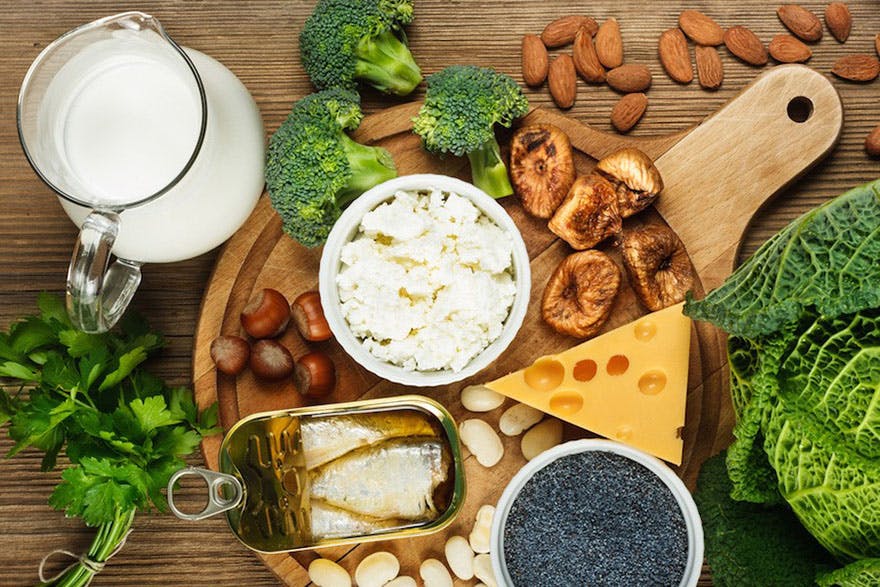Eat to Support Your Bones
HEALTH & WELLNESS
BY ELIZABETH_WARD | 10.21.2014

Calcium and vitamin D garner lots of attention for building and maintaining strong bones. That makes sense: 99% of all calcium is located in the skeleton, and vitamin D works with calcium to support bone health. However, there’s more to the story when it comes to helping prevent osteoporosis – a brittle bone condition - in women and men.
Here are some additional lifestyle factors that affect bone health.
Protein. Protein accounts for about a third of your bones. Bone tissue is active, and your body needs a constant supply of protein to support bone remodeling – the break down and build-up of bone tissue.
Research suggests that when you get enough calcium in your diet from food, dietary supplements or a mixture, a balanced eating plan with adequate protein supports bone health, reducing fracture risk. Foods rich in protein include dairy foods which are also excellent calcium sources. Other good sources of protein include meat, seafood, eggs and soy products.
Phosphorus: Phosphorus is a mineral that lends strength to your skeleton. In fact, about 85% of the body's phosphorus is found in bones and teeth. Phosphorus is abundant in high-protein foods, including yogurt, cottage cheese, milk, sunflower seeds, salmon, beef, and chicken.
Vitamin C. Vitamin C helps your body form collagen, a connective tissue that’s a structural component of your bones. Red bell pepper, orange juice, broccoli, strawberries, and kiwi provide vitamin C. Vitamin C is not stored in the body, so you need it every day.
Potassium: Potassium is part of every cell and it helps support bone health by counteracting the loss of calcium from bones in response to sodium in the diet. Potassium is found in nearly all foods, including meat and seafood, but in greater quantities in white and sweet potato, yogurt, orange juice, broccoli, milk, and bananas.
Magnesium: About half of all the magnesium in your body is associated with bone tissue. Magnesium is abundant in plant foods, including black beans, spinach, almonds, oatmeal and yogurt.
A healthy weight: Belly fat may hurt the bones of healthy premenopausal women, according to a recent study in the Journal of Clinical Endocrinology and Metabolism. Researchers found abdominal fat was linked to thinner bones that may be more prone to fracture. No matter what your age, if you’re overweight or carry extra fat in the belly area, lose the pounds with a balanced diet and regular physical activity.
Exercise: Weight-bearing physical activities, such as walking, running, and weight lifting, cause muscles and bones to work against gravity, resulting in new bone tissue formation that strengthens bones. The Physical Activity Guidelines for Americans recommends at least 2 ½ hours of moderate-intensity physical activity weekly, spread out over at least three days.
Smoking. Research suggests that cigarette smokers have less bone mass than non-smokers. However, studying the influence of smoking on bone health is complicated by other lifestyle factors, including alcohol use and poor diet, so the exact effects of smoking on bones are unclear.
Image Credits: Evan Lorne/Shutterstock.com
Recommended Articles
The 5 Best Foods That Will Help Supercharge Your Brain
Amidst our busy schedule, it's important to retain our focus and memory. Resting alone is not...
Iron deficiency is a lot more common than you would think. A recent survey by SATA CommHealth(i...
Mars vs Venus: Understanding the His and Hers of Nutritional Needs
Mars vs Venus: Understanding the His and Hers of Nutritional Gaps Although their DNAs are...






